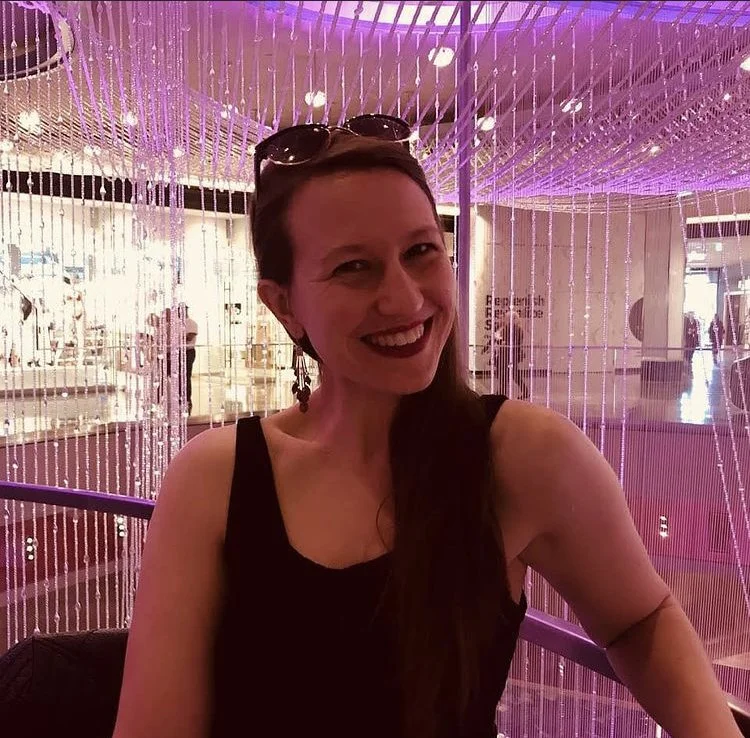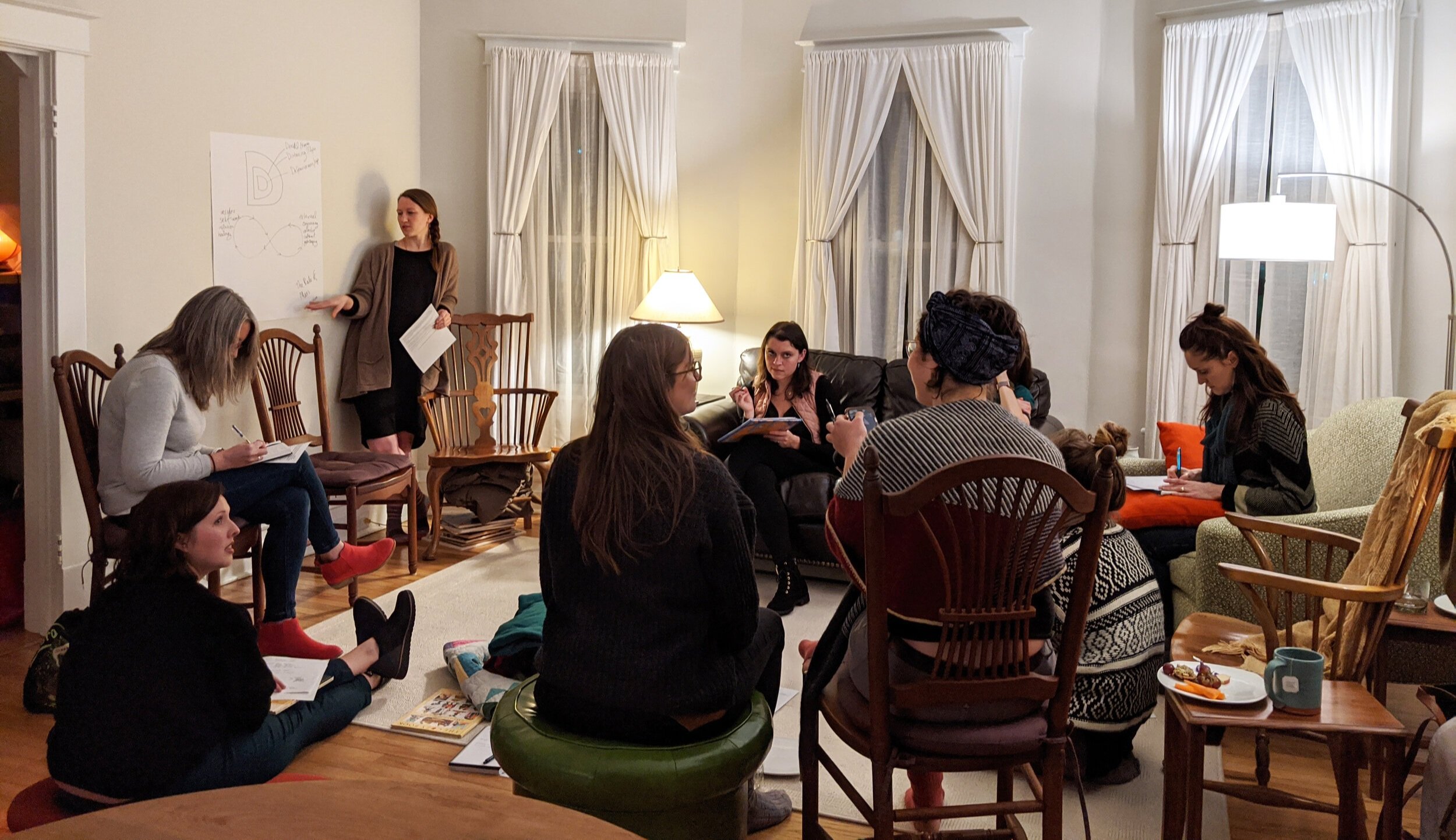About
Inspired by Dr. Joy DeGruy’s Post Traumatic Slave Syndrome*, Mistress Syndrome seeks to dismantle, heal from, and ultimately transform the legacies of white womanhood.
There is no one right way to engage with this work.
Mistress Syndrome started from a call within Black-led multiracial and multicultural spaces for white people, and white women in particular, to organize our own.
As individuals, we white women make daily choices to uphold our harmful status quo. This also means we have the opportunity to make daily choices to disrupt, heal, and transform the legacies of violence we’ve inherited.
As a collective, we white women have historically leveraged our whiteness to mitigate the restrictions of sexism and patriarchy. Mistress Syndrome acknowledges the deep harm and lasting hurt European patriarchy has had on our communities, families, and interpersonal relationships while embracing the call to be intersectional in our analysis, organizing, and solutions.
About Amanda
Amanda K Gross (she/her) is an intersectional anti-racist organizer, educator, and a weaver of people, ideas, and threads. Born in the heart of Atlanta, Georgia, to two white Mennonites, she was raised in the social justice legacies of Dr. King and Anabaptism, she was also raised to be a good little white girl in a system built for her advantage.
For the past two decades, she has committed to the life, study, and embodied work of social justice. Certified by YogaRoots On Location's Anti-Racist Raja Yoga School, Amanda has an MA in Conflict Transformation from Eastern Mennonite University’s Center for Justice and Peacebuilding and a PhD in Expressive Arts at the European Graduate School where her research investigates how arts and culture can support white settlers in sustaining the life-long work of anti-racism and decolonization.
About our History
In 2014, Amanda realized how she was one white woman among many facilitating spaces primarily made up of Black, Brown, and other Youth of Color. From after school programs to the classroom, these institutional spaces were over-represented by status quo and passing white ladies, like herself. Mentored by The People’s Institute for Survival & Beyond, in partnership with YogaRoots On Location, and while working with the American Friends Service Committee to end punitive discipline policies in local schools, she began to more deeply consider the specific impact and the positionally of white women to end white supremacy. At the start of 2016, along with her colleague, she co-founded White Women’s Groups as an answer to the call to organize your own.
*About our Framework
In Dr. Joy DeGruy’s groundbreaking work Post Traumatic Slave Syndrome, Dr. Joy describes Post Traumatic Slave Syndrome as “a condition that exists when a population has experienced multigenerational trauma resulting from centuries of slavery and continues to experience oppression and institutionalized racism today.” Dr. Joy builds off of the concept of Post Traumatic Stress Disorder to unpack a pattern of behaviors and beliefs impacting those who were enslaved, their communities, and their descendants today. Dr. Joy later posits that white people have also been impacted by this traumatic legacy of multigenerational violence, racial superiority, and the justification of “500 years of trauma and dehumanization [that Europeans and their descendants] and their institutions produced.” If there is a Post-Traumatic Slave Syndrome, then there must be a Post-Traumatic Master Syndrome. And indeed, in the trauma healing field, Perpetration-Induced Traumatic Stress describes the “psychological consequences of violence against human beings” on the person perpetrating the violence.
When Amanda asked a friend and colleague where she could find the book about Post-Traumatic Master Syndrome, he challenged her to write it. Mistress Syndrome is her accepting that challenge, with one important modification. Mistress Syndrome uses an intersectional framework to work with the multi-generational impacts of “Imperialist White Supremacist Patriarchal Capitalism” (to quote bell hooks). This intersectional understanding has been informed by the historic and ongoing work of countless Black, Indigenous, and Women and Femmes of Color through their scholarship and through the navigation of interpersonal relationship. Our frameworks likewise center radical embodied healing and transformative justice approaches and embrace Grace Lee Bogg’s call to be Solutionary in our co-creation of life-giving alternatives that move our communities beyond a dependence on harmful systems.
About Affinity Groups
Affinity spaces (sometimes called "caucusing") are commonly used in anti-racist organizing. For those unfamiliar with race-based affinity work, the idea of racially segregating on purpose can come as a surprise. Affinity spaces can help facilitate more honest conversation than often happens in multiracial spaces. For people racialized as white who have rarely had to think about their own racial identity, the white affinity group creates a space for introductory conversations about race and racism without re-traumatizing Black, Indigenous, and other People of Color/ People of the Global Majority in the process. White affinity spaces also transfer the emotional labor and responsibility of race-related conversations onto white people as a space to practice these conversations with other white people.



